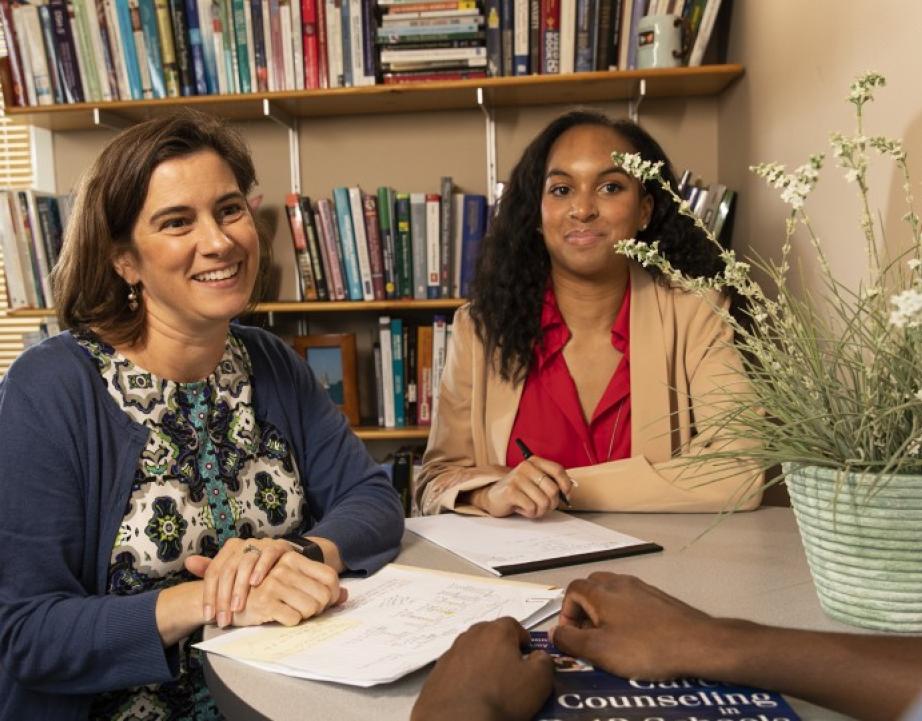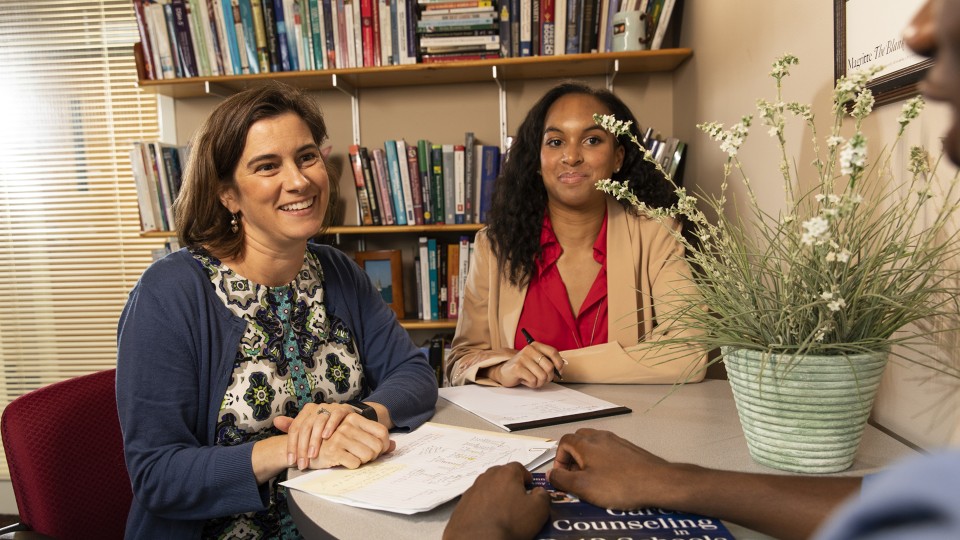Friday, Oct 18, 2019
Dr. Christina Peterson worked with graduate students in counseling programs
by Keith Fernbach
A collaborative project between a Rider education professor and two students has resulted in an article accepted for publication in the national journal Counseling Outcomes Research and Evaluation.
The article, by Dr. Christina Peterson, Kaitlyn Schmid ’19 and graduate student René Kososki, “A National Survey of Counselors’ Use of Five Types of Program Evaluation,” investigated how counselors use program evaluation in their practice. It examined the five types of evaluation and looked at the frequency with which counselors perform evaluation, if evaluation practice differs by type of counselor and type of evaluation, and obstacles to conducting evaluation.
Nearly 1,000 counselors were surveyed for this study, and they were classified into three groups. One of the study’s key findings is evidence of a dramatic shift in attitudes toward evaluation among counselors. “Historically, the greatest obstacle to doing evaluation or research in practice has been a strong opposition by the counselors themselves,” says Peterson, adding that clinical mental health counselors in particular considered it to not be relevant to their work.
“Our study found that today, this is no longer the case,” says Peterson.
The belief that research is not relevant to practice was one of the lowest endorsed obstacles by all three types of counselors (ranked overall 24 out of 28), while “considering it a waste of time” and “harmful to clients” were the two lowest ranked.
The study found instead that external factors are now a greater obstacle to hindering research and evaluation, with lack of time, low administrative support and funding emerging as key themes.
“This suggests that while counselors themselves may be beginning to see the value in conducting evaluations to enhance their practice, key stakeholders such as insurance companies, administrators and supervisors do not,” says Peterson. “Advocacy efforts in the counseling community should therefore target wider audiences, and should be tied to the critical interests of those audiences such as academic achievement or return on investment.”
Among mental health counselors, money was a key obstacle, with many emphasizing that fee for service in clinical practice does not compensate for research, while others indicated that budgets do not include research funding. “I was most interested to learn that fee for service is a real impediment to research-based practice as this is an example of how insurance-based health care can interfere with our ability to provide quality services,” says Peterson, who is also the chair of the Department of Graduate Education, Leadership and Counseling.
This is not the first time Peterson has partnered with her students on research projects. She sees it as a way to help them develop their skills beyond the classroom, and she makes it a priority to work with students who display the aptitude and interest to expand their learning.
“Collaboration outside of class is something that I use when I discover a student who is particularly transformed, or who has found their strength in research,” she says. “I regularly publish and present at conferences with students. I also reach out to those who I know have something to say to mentor them in presenting on their own.”
Peterson is committed to fostering students' research interests and abilities as an extension of her teaching. “The research class is a good beginning, but the added experience of doing a project for dissemination to the professional community solidifies the skills that are essential for the scientist-practitioner," she says. "I was an adult before I discovered that research was a passion for me. I only want to pass on that passion to those who follow."


